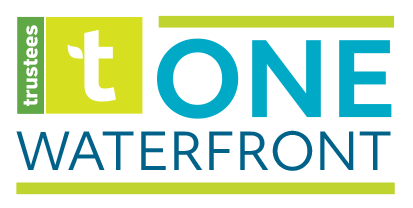Report urges equity focus in resilience planning for East Boston
What steps can be taken to make climate resilience planning in East Boston more equitable and inclusive? A newly released report explores this question for future development, and offers recommendations aimed at preventing patterns of displacement, protecting marginalized communities, and improving residents’ quality of life in the long term.
The report, from The Sustainable Solutions Lab (SSL) at UMass Boston, centered the research around three main themes:
Preparing the built environment to be protected from climate change
Reflecting critically on ongoing adaptation planning efforts focused specifically on coastal green infrastructure, and their impacts on coastal communities
Examining what approaches to planning are desirable for the community to move forward
Join us this Friday for a briefing of our working paper on “Recommendations for Equitable Climate Resilience in East Boston.” The event will be held first in Spanish at 9 am and then in English at 10:30 am. Register Now:https://t.co/u0qhrk6129 #environmentaljustice pic.twitter.com/i2HKg5jGQv
— SustainableSolutionsLab (@SSL_UMB) December 15, 2021
“It is essential to reflect on what climate change adaptation agenda we are fostering in Metro Boston,” noted co-author Dr. Antonio Raciti while presenting the findings in a Dec. 17 webinar.
East Boston, a coastal neighborhood facing significant climate change impacts including sea level rise, is also contending with housing pressures and the threat of gentrification.
In interviewing residents about their visions for the waterfront, the report’s authors found consensus for East Boston to have “a resilient and functional waterfront,” with priorities including accessibility; respect for the natural landscape; climate resiliency; green spaces to enjoy views and fresh air; and the inclusion of amenities and resources supporting local businesses and economy. Significantly, the report’s authors noted, “In terms of urgency to act, almost no respondent placed the threat of climate change over the housing crisis and other socioeconomic problems affecting East Boston. The risk of being displaced, life in overcrowded spaces that exposed entire families to COVID-19, and high rents that make them depend on government support and charity to access food, are impacting residents’ sense of human dignity.”
In order to address these larger economic, social and environmental concerns while planning for resilience, the SSL report urges a reimagined adaptation planning process that includes community representatives as an integral part of decision-making. Pointing to three conditions for equitable adaptation (full inclusion, addressing systemic injustices, and regularly evaluating the process), the report features seven recommendations to achieve more equitable and inclusive resilience outcomes, stressing the importance of genuine and thoughtful community engagement.
[VIEW OR DOWNLOAD THE REPORT HERE]
“East Boston residents know that to create a truly resilient neighborhood a holistic approach is necessary, not one solely focused on the protection of the built environment,” the report states. “Overall, there is a general consensus that climate resilience should not become another driver of gentrification and displacement in the neighborhood. Moving forward, it is essential that more voices from East Boston are part of shaping a vision to go from a resilient waterfront to a resilient community.”
##
Thank you!
This will be the last blog of 2021. As we look back at a year full of progress on Piers Park III, we’d like to thank all who joined our public webinars, attended a family festival or fitness event, and responded to a community survey. In the coming year we look forward to hosting additional bilingual community meetings to gather more ideas and feedback about the future waterfront park, both its design and its future programming. We hope to meet many more East Boston residents, families, local businesses and community partners in 2022, and send best wishes for a safe and healthy New Year.
[Blog thumbnail image courtesy Above Summit]
